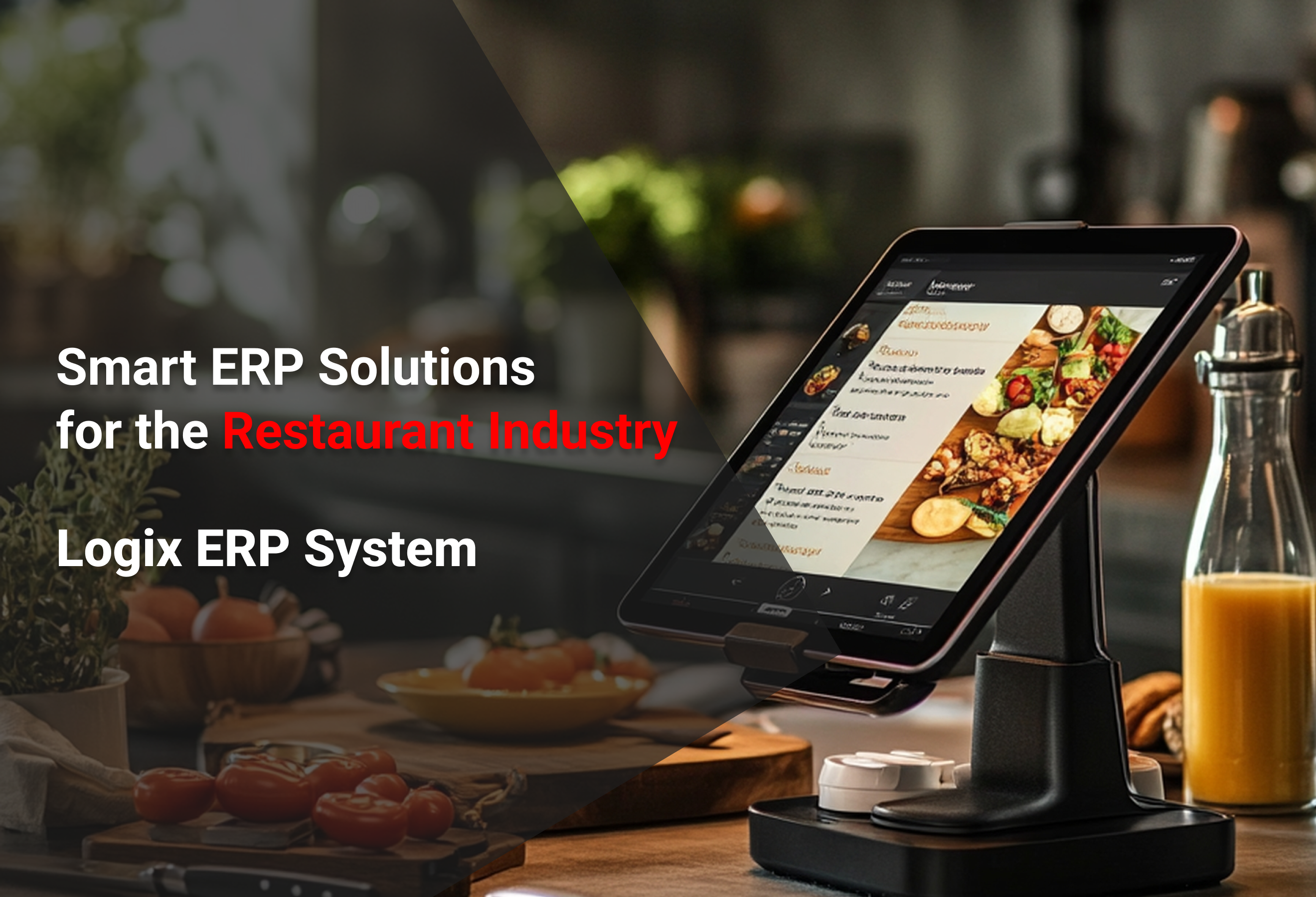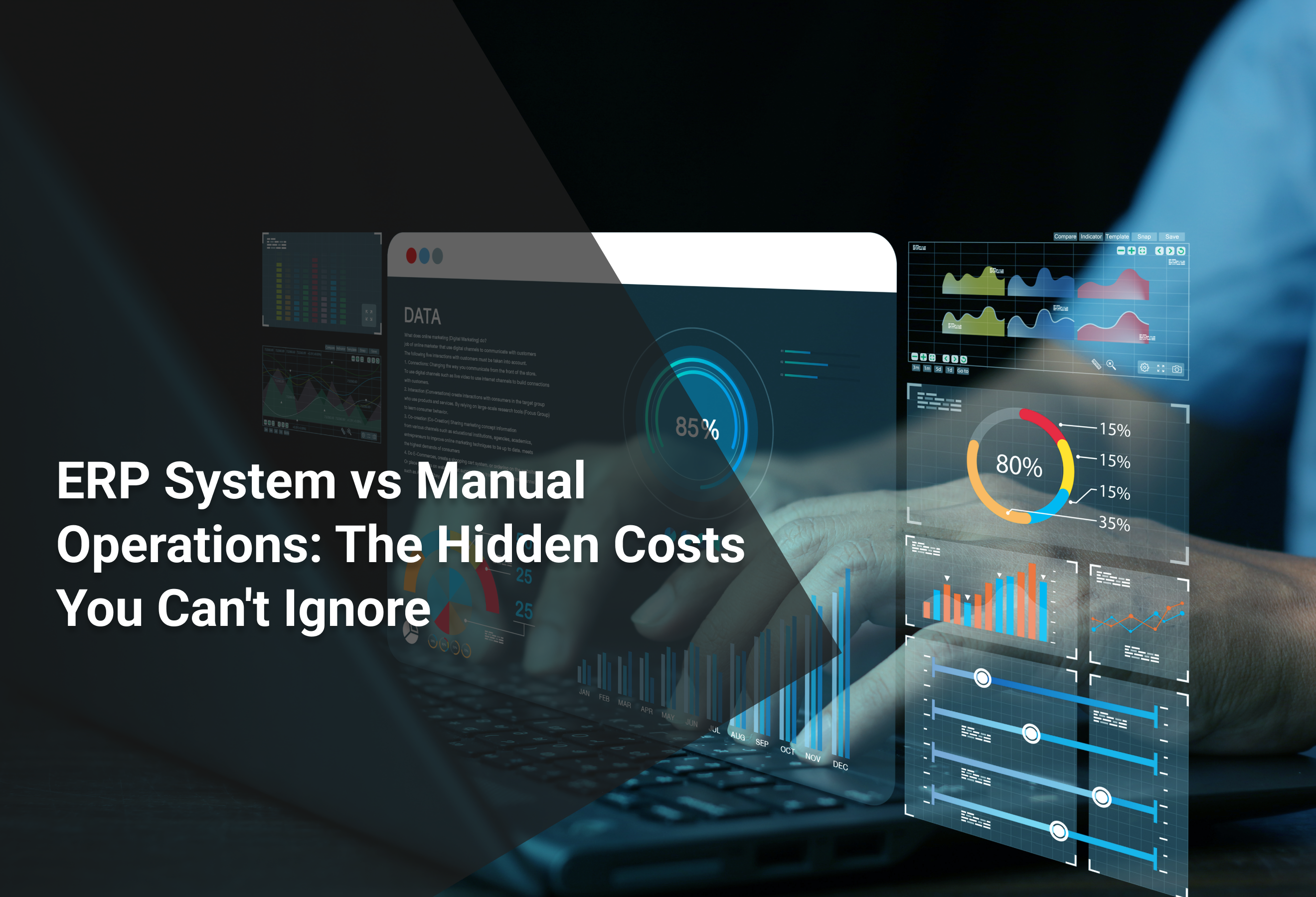
02/01/2023
In today's fast-changing business landscape, firms are experiencing growing pressure to remain competitive and efficient while coping with complicated operations and rapidly evolving technologies. Enterprise Resource Planning systems have developed as a critical tool for firms to manage their operations and stay ahead of the curve.
An ERP system is a complete software solution that integrates every element of an organization, including accounting, customer relationship management, supply chain management, and more. ERP solutions give businesses a single platform for data management and analytics, allowing them to streamline their operations, improve decision-making, and spur growth.
We'll discuss why ERP systems are more crucial than ever for companies of all sizes in this blog article, as well as how they can help you streamline processes, cut expenses, and improve your bottom line. We'll cover all you need to know to make an informed decision about implementing an ERP system in your company, from the advantages of real-time data to reduce costs. In order to understand why an ERP system is a crucial investment for your company, regardless of whether you run a small business or a major corporation, read on.
You will find out in this blog:
- What is an ERP System and How Does It Work?
- Top Benefits of Implementing an ERP System for Your Business
- Streamlining Your Operations with an ERP System
- Reducing Costs and Increasing Efficiency with an ERP System
Let’s dive in!
What is an ERP System and How Does It Work?
ERP system is a software solution that integrates numerous corporate processes and activities into a single, unified platform. This enables firms to streamline their processes, cut expenses, and improve decision-making by offering real-time data and insights.
The majority of ERP systems come with a variety of modules that are created to manage particular business processes, including finance, human resources, supply chain management, customer relationship management, and more. These modules are connected to a central database, which enables information to be shared across different departments and functions in the organization.
Depending on the particular solution being utilized, the operation of an ERP system can differ, but there are generally a few essential tasks that must be taken. They may include:
Data collection: ERP systems gather information on employees, financial transactions, inventory levels, and client orders from a variety of sources throughout the company.
Data Storage: To make it accessible and shareable across all modules and processes, this data is then kept in a central database.
Data Processing: The ERP system uses algorithms and analytics to process the data and provide insights into many elements of the business, such as sales patterns, inventory levels, and production schedules.
Data Visualization: The insights created by the ERP system are then presented in a user-friendly format, such as dashboards and reports, which enable business leaders to make informed decisions based on the data.
By providing real-time data and insights that may guide strategic decision-making, an ERP system's primary objective is to assist organizations in streamlining their operations and increasing their bottom line. By integrating diverse operations and processes into a single platform, ERP systems enable firms to decrease costs, improve productivity, and gain a competitive edge in today's fast-paced corporate world.
Top Benefits of Implementing an ERP System for Your Business
There are a lot of benefits to installing an ERP system:
Streamlined Operations: One of the key benefits of an ERP system is that it can help organizations streamline their operations by merging diverse processes and activities onto a single platform. Increased productivity, fewer mistakes, and higher efficiency can all result from this.
Real-time Data and Insights: ERP systems provide real-time data and insights into numerous parts of the organization, such as sales patterns, inventory levels, and consumer behavior. This makes it possible for corporate executives to decide wisely based on current facts, which can enhance performance and spur growth.
Better Customer Service: ERP systems can assist firms in offering better customer care and assistance by enabling real-time access to client data and purchase history. The bottom line may benefit from higher levels of customer satisfaction and loyalty as a result of this.
Reduced Costs: ERP systems can help firms decrease costs by automating manual procedures, improving inventory levels, and avoiding waste. This may result in more profitability and increased market competition.
Improved Collaboration and Communication: By offering a single platform for data and information sharing, ERP systems can promote collaboration and communication across multiple departments and functions in the organization. This can lead to more effective decision-making and a stronger, more cohesive team.
Scalability and Flexibility: ERP systems are made to be flexible and scalable so they can develop and change as the business does. This can help firms stay agile and responsive to changing market conditions, while also enabling them to take advantage of new prospects for growth.
Businesses of all sizes and in all sectors can profit greatly from deploying an ERP system. From enhancing productivity and decreasing expenses to offering real-time data and insights, an ERP system may help firms stay competitive and prosper in today's fast-paced business world.
Streamlining Your Operations with an ERP System
Companies are seeking ways to enhance their operations and acquire a competitive edge in the fast-paced commercial world of today. Using an ERP system is among the most efficient ways to accomplish this.
By incorporating numerous procedures and features into a single platform, an ERP system can assist firms in streamlining their operations. This may result in more effectiveness, fewer mistakes, and higher production.
For example, an ERP system may automate manual activities, like data input and inventory management, which can save time and eliminate errors. By offering a unified platform for data management and analytics, an ERP system can help assist decision-making by giving real-time data and insights into numerous parts of the organization, such as sales patterns, inventory levels, and production schedules.
Furthermore, by supplying real-time visibility into inventory levels, delivery schedules, and supplier performance, an ERP system can assist firms in improving their supply chain management. Businesses can benefit from this by minimizing waste, cutting expenses, and strengthening their ties with suppliers.
By fostering better collaboration and communication across various organizational divisions and functions, an ERP system can also expedite operations.
Reducing Costs and Increasing Efficiency with an ERP System
In today's competitive business world, firms are continually seeking methods to decrease expenses and boost efficiency. One of the most effective methods to achieve these goals is by installing an ERP system.
By automating manual procedures, and improving inventory levels, an ERP system can assist firms in cutting costs. For instance, an ERP system can automate data input, invoicing, and accounting operations, which can reduce errors and save time. An ERP system can assist firms in identifying areas where costs can be cut, such as excess inventory or ineffective production procedures, by offering a consolidated platform for data management and analytics.
Furthermore, by supplying real-time visibility into inventory levels, delivery schedules, and supplier performance, an ERP system can assist firms in improving their supply chain management. Businesses can benefit from this by minimizing waste, cutting expenses, and strengthening their ties with suppliers.
An ERP system can help firms cut expenses while simultaneously boosting productivity by streamlining processes and enhancing collaboration and communication. An ERP system can facilitate team collaboration and improve decision-making by giving users access to a single platform for data exchange and communication.
The benefits of cutting expenses and increasing efficiency using an ERP system can be significant for organizations of all sizes and sectors. By automating repetitive operations, optimizing inventory levels, and boosting cooperation and communication, an ERP system may help firms stay competitive and meet their goals for growth and profitability.
Conclusion
In conclusion, an ERP system is a strong tool that can assist organizations of all sizes and industries to streamline their operations, decrease expenses, and enhance efficiency. With the present corporate environment growing increasingly competitive and fast-paced, an ERP system is more vital than ever before.
By combining diverse processes and services onto a single platform, an ERP system may help businesses make better decisions based on real-time data and insights. Additionally, it can optimize inventory levels, automate manual operations, and enhance coordination and communication across various organizational divisions and functions.
With the correct ERP system in place, businesses can streamline their operations, decrease expenses, and enhance efficiency, putting themselves up for success in the years to come.








